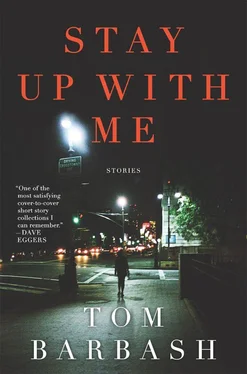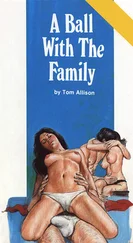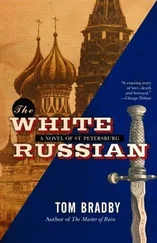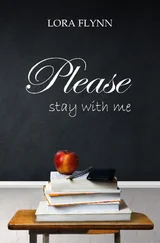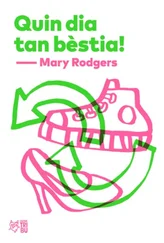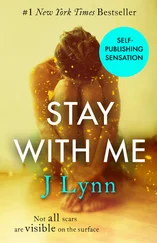After dinner I bring out the papers. Mrs. Berner looks them over closely. She shuts me out for a while and I think for a moment she might lose her nerve and decide to stay. But then she looks up at me and smiles.
“You might want to think about this awhile.”
“I have,” she says. “Where do I sign?”
I show her.
“Now I give you this check for ninety thousand. You fill out a check for two thousand and make it out to me. That’s a transaction fee.”
“Transaction fee. Okay.”
“That leaves you with eighty-eight thousand.”
“That’s plenty.”
And then we have nothing to say to each other. I drink my hot chocolate and she drinks hers.
Half an hour later I pull my coat on to leave.
“Randall,” she says before I’m out the door.
“Yes,” I say.
“We want you to have those things. I wanted you to know that.”
“What?”
“The things you’ve been taking. We want you to enjoy them.”
I feel dizzy suddenly. I can hear Mr. Berner coughing.
“You’re welcome to have anything of ours you want. We don’t have anyone to give things to anymore. You know what that’s like?”
“Thank you,” I say.
“I picture our things in your little apartment over the general store. I picture you taking them into your home when you buy one. You’ll have a nice home, one day. Maybe you’ll choose to stay around here. We’d like you to. We’d like you to think of us as your family.”
“Thank you,” I say. I tell her I’ll help her move.
“You’re not who you think you are,” she says before I can get away. “Give it time. I know. You’ll find your peace.”
The door is open, but I stand still and seen before her, unable to move, overcome with a feeling I cannot name — the sense of being followed.
“You think you’re stealing, but it’s yours, don’t you see? Always was. You’re forgiven, Randall. Money shouldn’t divide. The past is over and done.”
It’s clear from her eyes she’s talking about someone else, someone she blames herself for losing years ago, but I pretend she’s talking to me.
“We love you very much,” she says.
“I know that,” I say.
I rode up to the snow-blessed hills of Vermont on a ski trip for singles. I did. Two overheated buses full of women and men between the ages of twenty-two and thirty drinking flavored vodka from plastic martini glasses, and trying to mask their awkwardness. My college roommate, Amanda, dragged me along, in part for company, but mostly to extract me from the ditch I’d dropped into since things ended with Mitchell. I was permitted to mention Mitchell once — for under ten minutes — Amanda said. The subject was otherwise off-limits.
“Deal,” I said.
“Let’s see,” Amanda said.
There were a few more women on the trip than men, not by design, but two of the men had called in sick at the last moment and another — the one I decided I would have hooked up with — was in Florida arranging his grandfather’s funeral.
A broadsheet was circulating with miniprofiles of all of us, and pictures of everyone but me (I’d signed on too late). Amanda quickly sized up the talent — dentist, doctor, actor, shrink… software engineer, sports agent, magazine editor… and she picked out two lawyers, Kevin and Roland, who worked for the same public interest firm and were sitting two rows back from us. Kevin’s hair was thinning and his gray eyes were slightly amused. Roland, who wore a pale blue ski cap, had a wide smile, the patchy beginnings of a beard, and attractive lines around his mouth. They seemed charming enough in our initial conversation, and if I pretended I was someone else, I could get through this, I thought.
We were booked into a fairly large bed-and-breakfast — eight rooms, and Amanda arranged it so our room was next to the lawyers. It was around nine when we arrived. Killington, Vermont. We went straight out for dinner. There were other singles at our table, all perfectly harmless, but after they cleared the salads, we confined our conversation to the four of us. The lawyers were telling stories of spectacular ski accidents from their childhoods. Roland used to race. He’d had a nearly fatal collision with a tree when he was seventeen and lay in a coma for a week. They were certain he would die or end up a vegetable. “I think my brother had already made plans to move into my room.”
He closed and opened his eyes as though reenacting it for us.
“Then one day I just woke up.”
“He transmogrified,” Kevin said.
We waited for an explanation.
For around half a year — while he convalesced from his broken leg and two broken ribs — all the murkiness and “fuckedupness” in his adolescent life disappeared, he said. His grades improved. He wrote a play (loosely based on his hospital stay) that earned him raves in the school newspaper, and he learned how to play the French horn. He read War and Peace .
“It was as though I’d cleared out all the clutter in my brain and I suddenly had room for everything I’d wanted to do. It lasted until the summer after graduation.”
Kevin refilled everyone’s wineglasses. We looked at Roland now, who seemed uncomfortable with the attention he’d drawn.
“Then I went back to ripping off convenience stores,” he said. I believed him until the corner of his mouth turned up in a smile.
“He was a God as a racer,” Kevin said.
“I’m far more restrained these days,” he said.
“His restraint would make your hair stand on end,” Kevin said. “I’m Mister Leisure out there. I snowboard with the high-school dudes.”
“How old are you?” Amanda asked him.
“Thirty.”
“Have you ever been married?”
Amanda was a financial analyst and accustomed to gathering information before committing her clients’ resources. I shot her a look.
“Yes,” he said.
“Somehow I knew it,” Amanda said.
“She died,” Kevin said. “Not from skiing.”
“I’m so sorry. How did she die?” Amanda asked.
“She had an aneurysm,” he said. “Listen, I don’t want to depress everyone. It was a while ago.”
“Two years,” Roland said.
“You poor, poor thing.” Amanda leaned toward Kevin with increased interest. “My uncle had cancer. He’s better now. They got to him early, I guess. How old was she?”
“Twenty-six.”
“My God, that’s so young .”
“It is.” He fidgeted with the clasp on his leather watchband. “Anyway, how long have you guys lived in the city?”
“My whole life,” I said.
“Five years,” Amanda said, about herself. Then she told them about my childhood. It was a sweet gesture, I suppose, though she mangled several details and made me sound fairly disturbed (and my father sound like a polygamist). While she was talking, I started to picture Kevin’s young wife a day before her death, booking a vacation she’d never take, or buying groceries she’d never eat, and then I remembered Mitchell and I realized he was at a secure distance now, and I felt calm, because when you got right down to it, what had happened to me? Nothing life-threatening. No coma, no aneurysm.
I poured myself another glass of wine. Then two more, and we had shots of vodka after that, which Amanda said should be our last.
We started telling jokes. Or maybe I just did. I told them the one about the city boy moving upstate. He gets invited to a party by his downstairs neighbor.
“What’ll it be like?”
“Oh, it’s going to be wild,” the guy says. “There’s going to be some drinking, there’s gonna be some fuckin’; they’ll be some fightin’, and maybe a little dancin’.”
Читать дальше
